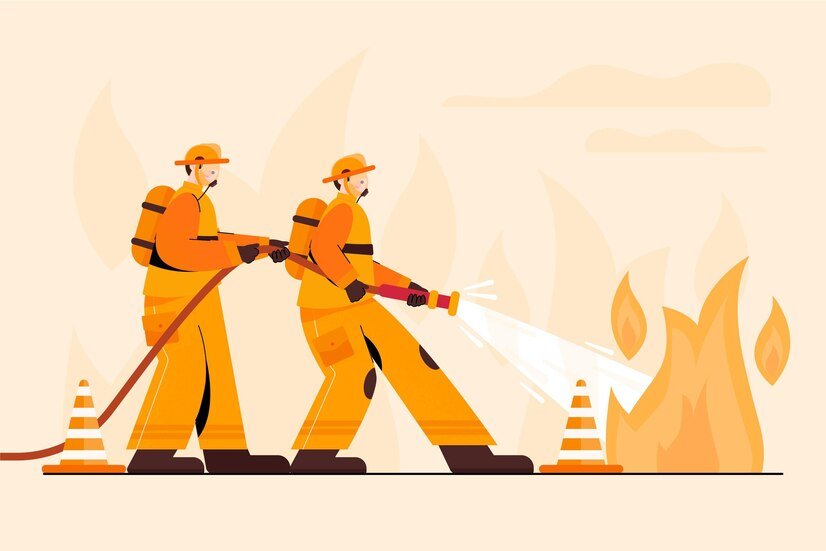In the world of business, protecting both your property and your investments is paramount. One often overlooked yet crucial system that plays a key role in this protection is a fire alarm system. These systems go beyond merely detecting smoke or fire—they serve as a first line of defense, safeguarding your building, assets, and most importantly, the lives of everyone inside.
Whether you’re a small business owner or managing a large facility, understanding the importance of fire alarm systems is vital to ensure business continuity and long-term success.
What is a Fire Alarm System?
At its core, a fire alarm system is a safety network designed to detect signs of fire, smoke, carbon monoxide, or other related emergencies. When a threat is detected, the system triggers alarms that alert building occupants and emergency services, allowing for a swift response.
Why does this matter? Early detection can make the difference between a minor incident and a catastrophic event. For this reason, fire alarm systems are a mandatory safety measure in most commercial buildings. Having such a system in place not only keeps people safe but also protects your business investments.
The Basics of Fire Alarm and Fire Protection Systems
Fire protection systems encompass more than just alarms. They involve a range of equipment and devices designed to prevent, detect, notify, and suppress fires. Here’s a breakdown of key components typically found in these systems:
- Fire Detection Devices
These include smoke detectors, heat detectors, and carbon monoxide detectors, which constantly monitor the environment for signs of fire. These detection devices are crucial for providing the earliest warning possible, giving occupants enough time to respond or evacuate.
- Notification Systems
When a fire is detected, the system triggers notification devices such as audible alarms (sirens or bells), visual alarms (flashing lights), or even voice announcements. These devices work together to ensure everyone in the building is aware of the potential danger and can evacuate immediately.
- Fire Suppression Systems
Beyond alarms, many buildings are also equipped with fire suppression systems, such as sprinklers or chemical extinguishing systems. These systems automatically activate when a fire is detected, working to control or even extinguish the fire before it can cause serious damage.
- Evacuation Support
In the event of a fire, emergency lighting, illuminated exit signs, and evacuation maps play a critical role in helping occupants find their way out safely. These elements are part of a larger fire safety strategy that ensures orderly and timely evacuation.
Why You Need a Fire Alarm System
- Protecting Lives
The foremost reason to install a fire alarm system is to save lives. Fires spread rapidly, and the sooner building occupants are alerted, the better their chances of evacuating safely. In the case of high-occupancy buildings, an early alert can prevent tragic outcomes.
- Minimizing Property Damage
A fire can devastate a business, destroying valuable equipment, records, and even the structure itself. Fire alarm systems enable faster intervention, whether through automatic suppression systems or emergency services, reducing the overall damage to your building and assets.
- Regulatory Compliance
In many regions, installing fire alarm systems is a legal requirement for businesses. Failure to comply with these regulations can result in fines, penalties, and even business closure. A fire alarm system ensures that your building is up to code, protecting your business from legal risks.
- Ensuring Business Continuity
A major fire can lead to significant downtime, which in turn affects your business operations and revenue. By installing a reliable fire alarm system, you are investing in the long-term health of your business, reducing the risk of extended closures or financial losses.
Gasco – leader in energy solution
A well-designed and maintained fire alarm system is more than just a safety precaution; it’s a necessary investment that protects your building, business, and the people within. By providing early detection, swift notification, and automatic fire suppression, these systems play a crucial role in minimizing damage and ensuring your business continues to thrive even in the face of unforeseen emergencies.
For any business owner, investing in a robust fire protection system is not just a matter of compliance but a proactive measure to protect what matters most—your people, property, and business assets.



